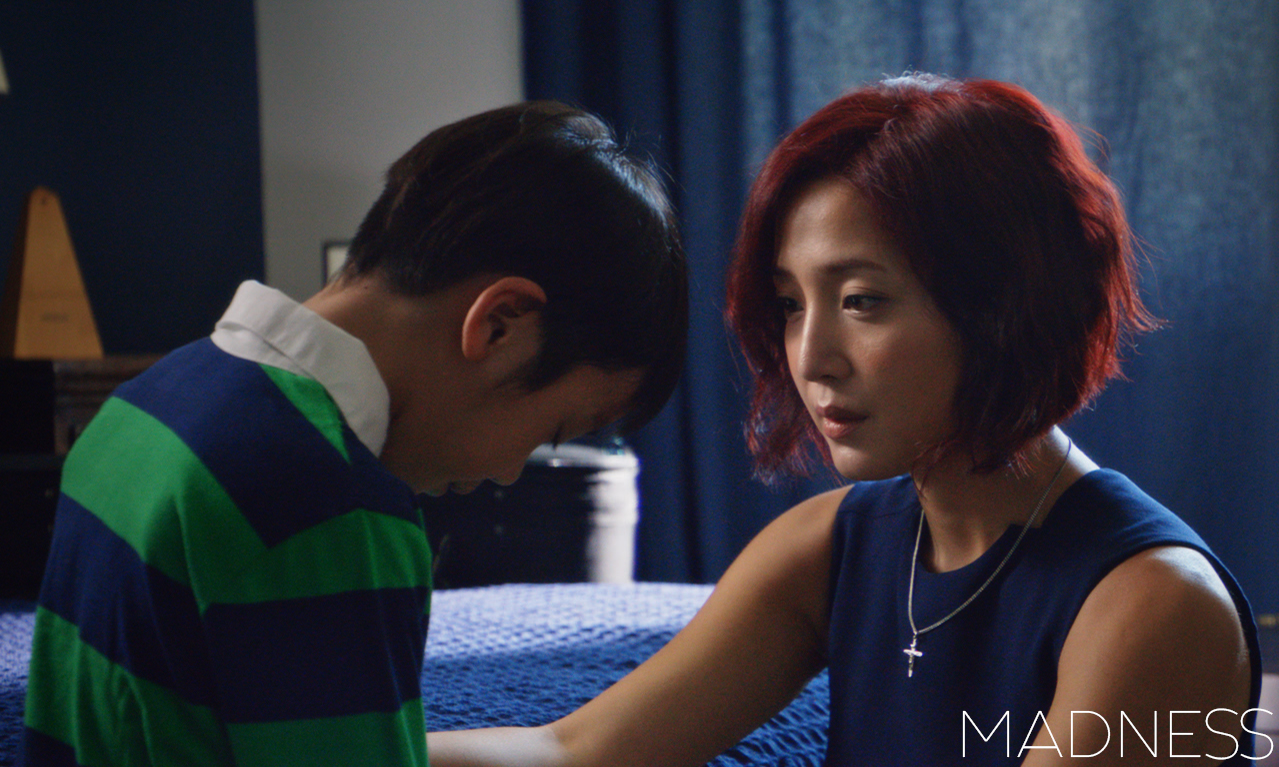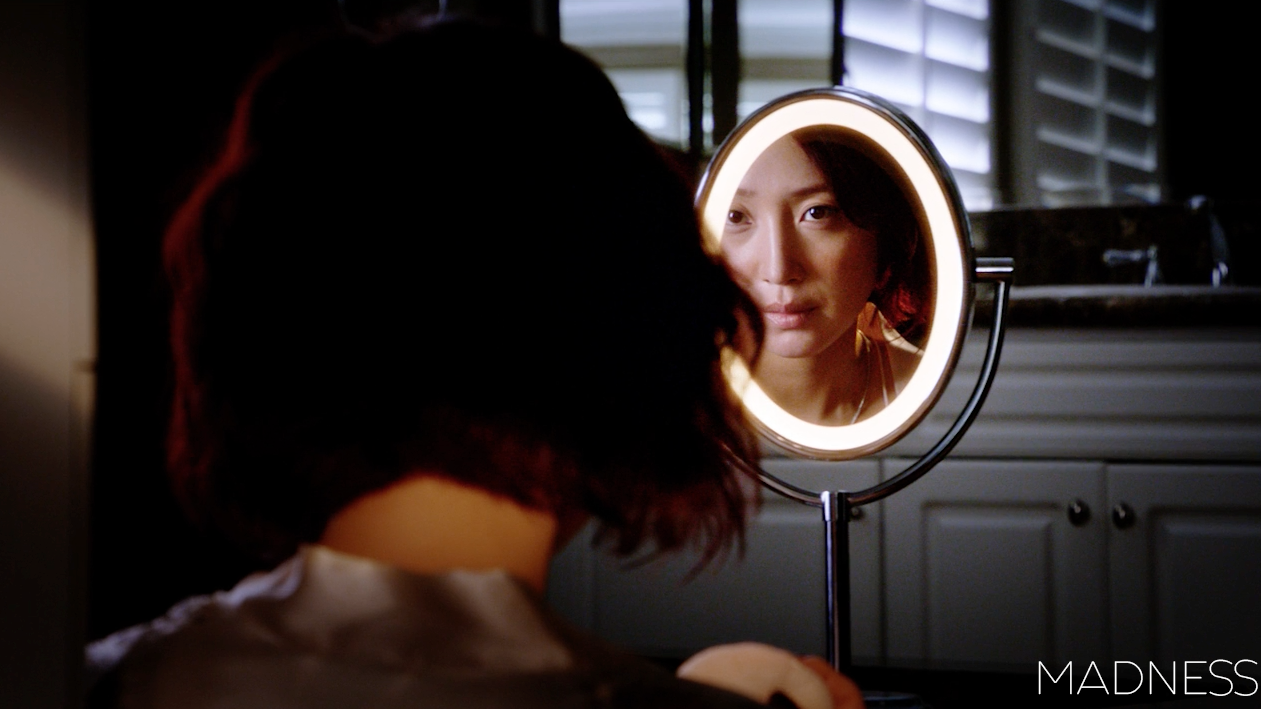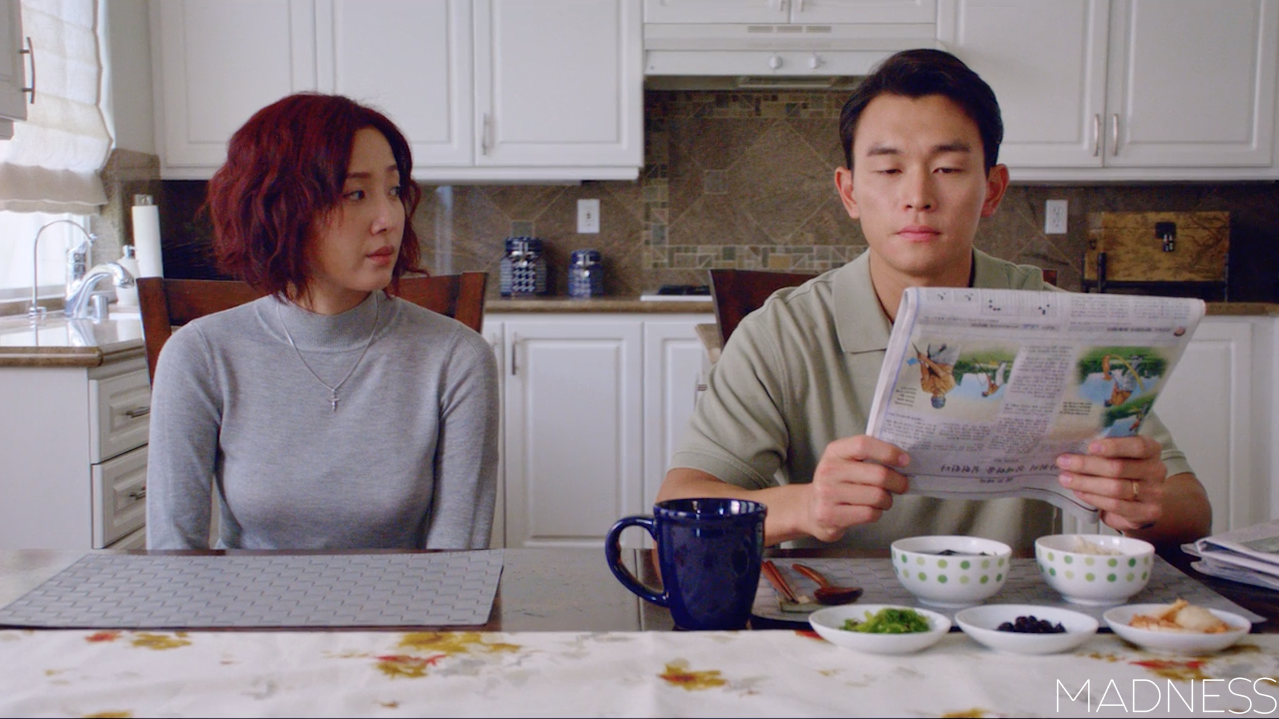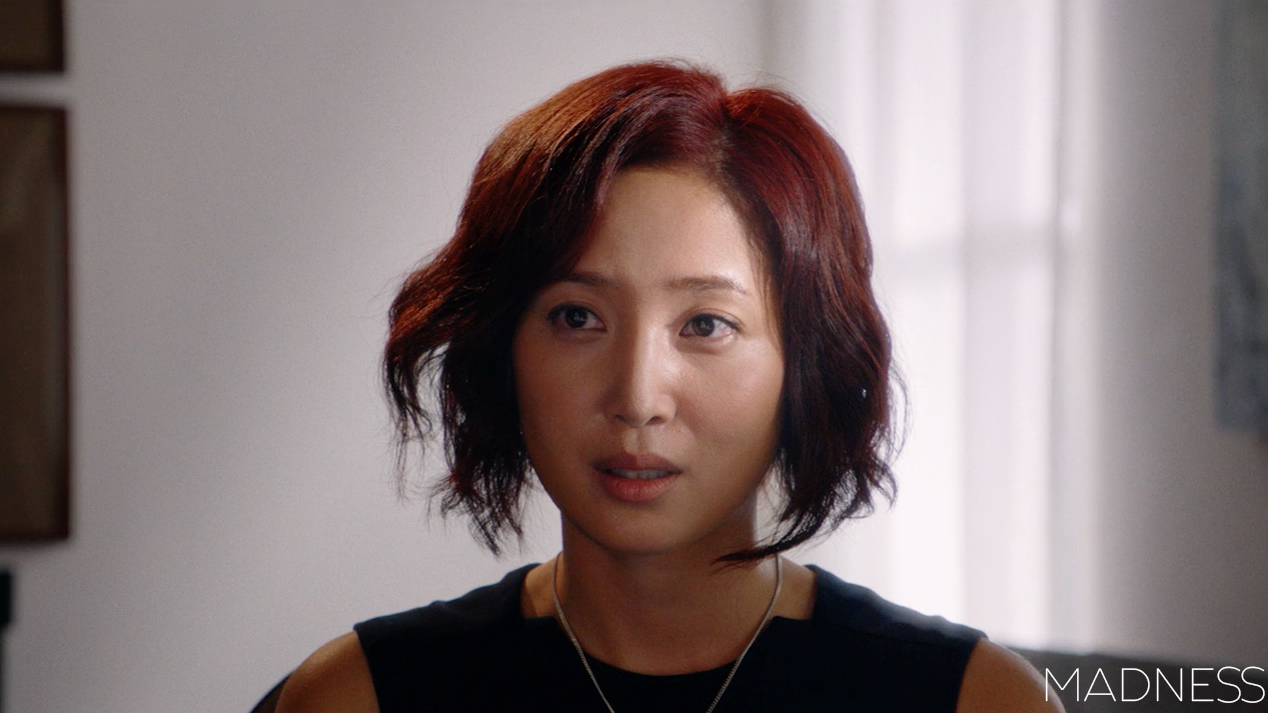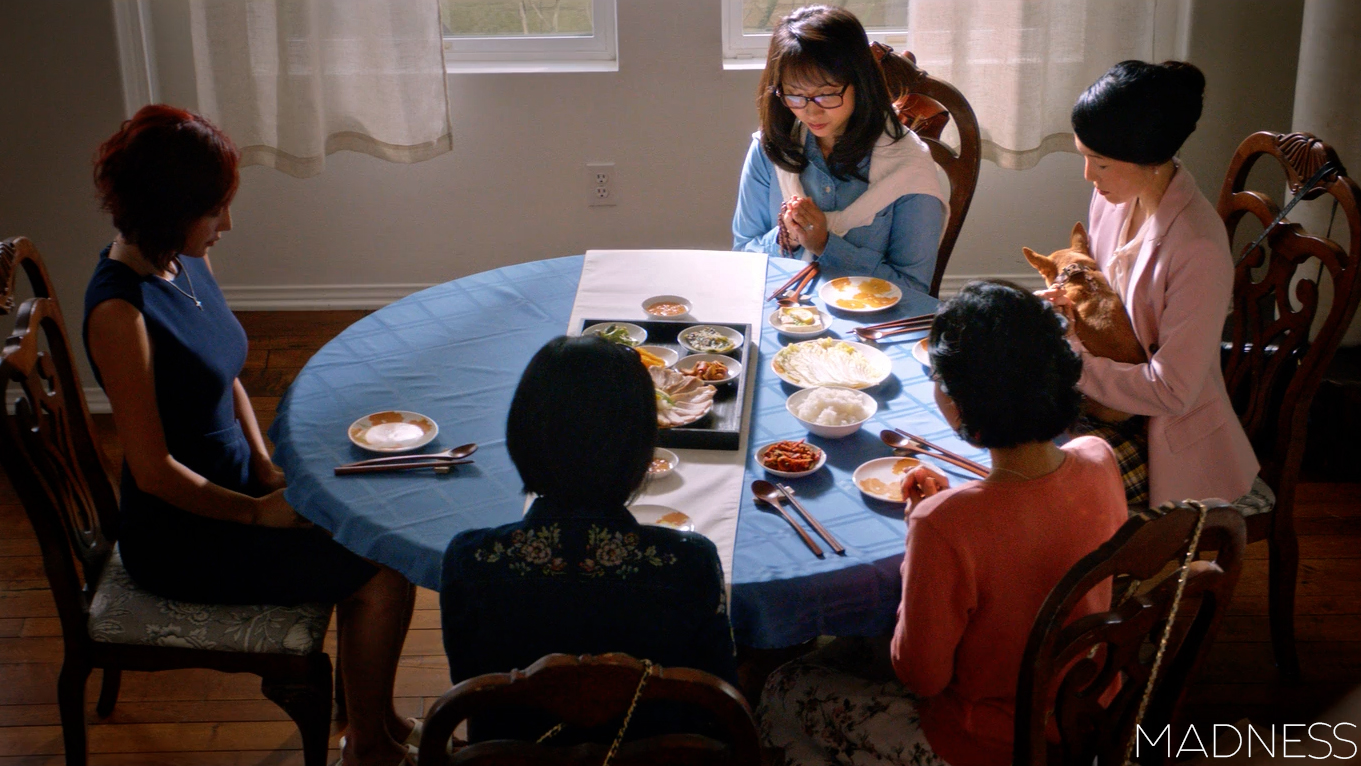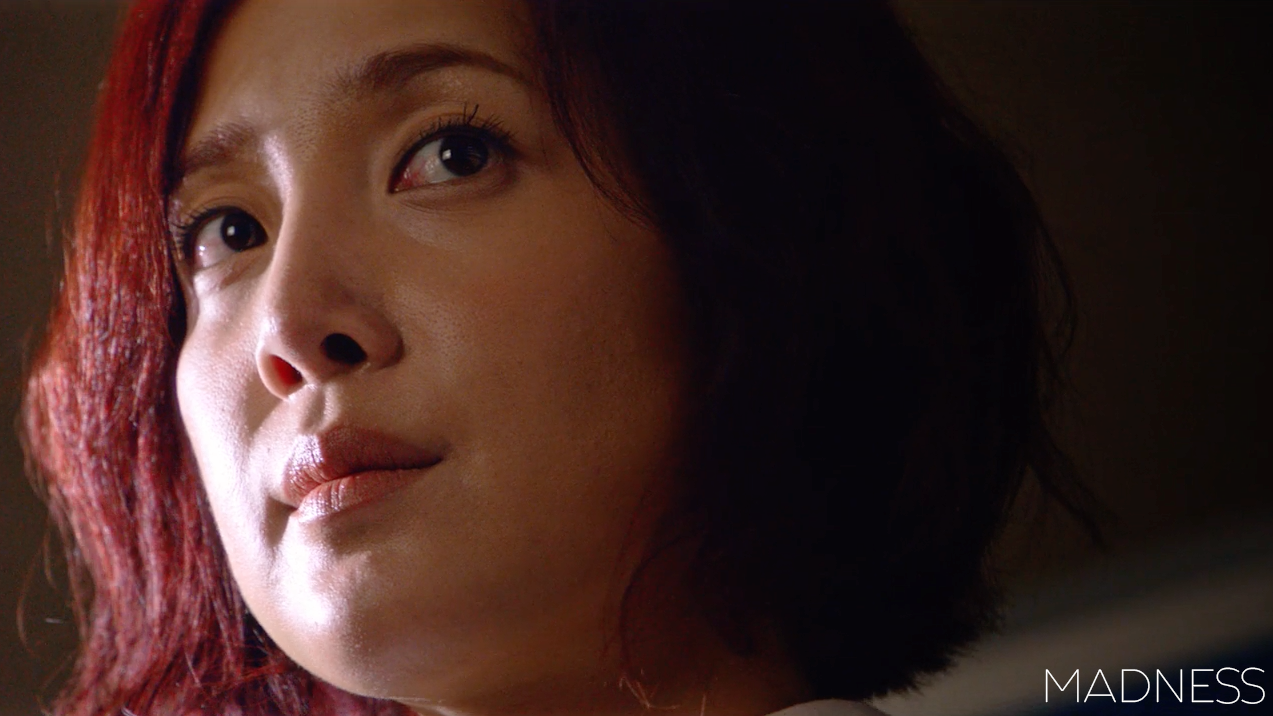Eun Ju is a housewife in mid-1990’s Orange County, California who seems to have a perfect life; however, when her son starts to exhibit potential mental and behavioral problems, Eun Ju is forced to confront her own suppressed madness.
11 min 01 sec / USA / 2017
http://www.imdb.com/title/tt6714882/?ref_=nm_flmg_dr_1
Winner of Indieworks’ Best of the Year Award
Accepted into Toronto REEL Asian Film Festival, San Diego Asian Film Festival, Asians on Asians Film Festival
Distributed by Seed and Spark
Director’s Statement
My parents are immigrants, and their story closely aligns with the narrative most other immigrants follow. My father worked hard, built a couple convenience stores from scratch, and found a way to be successful. He brought with him the values that Korea had instilled in him, many of which were conservative, proud, and masculine. He believed in having a traditional patriarchal family dynamic, and he made sure to earn enough so that my mother could stay at home and focus on raising me. Ever since I could remember my mother would tell me of how hard my father was working at stores that he didn’t even want to run so that I could eventually have the opportunity to do whatever I wanted.
Since my father was always at work, my mother was the one who mainly raised me. One day I asked my mother about what her dreams were. I knew that my father had always wanted to become a businessman, which is what he ended up being, but I was never sure what it is that my mother wanted to do. She told me that she didn’t have dreams- that when she grew up, there was no concept of having dreams and achieving them- when she grew up, it was just about surviving, supporting her family, and moving forward.
I don’t remember any resentment in my household growing up- just love and warmth- but when I heard my mother talking to me of her lack of dreams, it dawned on me that she might have been hiding her existential pain for my benefit. My mother was born into a world in which she was always pushed to look prettier, be cleaner, cook more, pray more, eat less, serve. She was born into a world in which the woman is a commodity and a trophy that exists only to serve the man. Was my mother truly happy, and if she was happy, was it because she was actually happy or was it because she was conditioned to accept her circumstances as the ultimate attainable status for a Korean woman?
I wanted to tell a story that would reflect some of the commonalities of Korean American families without having to depend strictly on the immigration aspect of Korean-Americanness, because that does nothing to propel the Korean-American narrative further- it could potentially cause people to think of Korean-Americans (or any other group) as just the other, the immigrant and not as a character who’s immigrant life is just a small cog in the larger framework of his or her story. But most importantly, I wanted to make a film for my mother that would express the potential sorrow and pain she may have never been able to express. I wanted to explore a character that was stuck in my mother’s position in life- suburban, comfortable, beautiful housewife- with my thoughts and philosophies- modern, American, feminist, rebellious, independent- and explore how much of a burden life must be if what you believe in is at odds with the life that you’ve been dealt.
- TJ Choi

